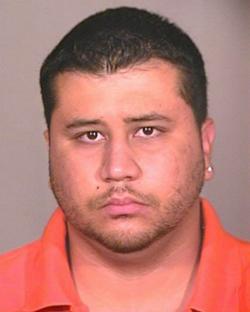George Zimmerman’s lawyers dropped him as a client on Tuesday, after he ceased contacting them. At their press conference, the attorneys noted that Zimmerman was in emotional turmoil over the Trayvon Martin killing. Zimmerman isn’t the only one having trouble dealing with a homicide. Former professional wrestler Scott Hall, who has publicly struggled with the psychological aftereffects of a self-defense killing since 1983, was arrested on Friday for domestic abuse. How do you get over the experience of killing a man?
By reliving the incident in slow motion. Those in counseling for having killed someone (accidentally or not) are asked by their therapists to recount the event in vivid, frame-by-frame detail. The patient typically becomes fixated on one aspect the story, questioning whether alternative actions at that moment would have changed the outcome. Could he have fled the scene, negotiated with the victim, or inflicted a non-lethal wound? At this point, the psychologist reminds the patient not to judge his actions in hindsight, but to think about his state of mind in the split-second in which the decision had to be made. The idea is to stop the patient from obsessing over things he can’t control in his past and focus on the present and future. The psychologist may find the patient’s actions indefensible, and the patient himself may conclude that he participated in an unnecessary homicide, but the general principle underlying the treatment—don’t focus on the past—remains the same. The psychologist asks the patient what can be learned from the killing, so that he will behave differently in the future. At no point during the process does the psychologist express an opinion on whether the patient’s actions were right or wrong.
Most of the research in this field involves police officers who have killed in self-defense or in defense of others. Police officers kill around 550 people per year, and many departments require counseling for any employees who are involved in a shooting. Some officers recall the incidents in question as unfolding in slow-motion, or through tunnel vision, or they report feeling as if they were having out-of-body experiences. Many forget all or part of the killing in which they were involved.
There are often physical symptoms of stress in the immediate aftermath, such as headaches, nausea, fatigue, loss of appetite, and sexual dysfunction. (Zimmerman’s former lawyers say he has lost significant weight.) Flashbacks, panic attacks, insomnia, and nightmares are also common. With proper counseling, the patient should be able to overcome the more crippling psychological effects within a few weeks. In a very small number of cases, like that of wrestler Scott Hall, the trauma lasts for several months or years. Patients who suffer from long-term problems may have had pre-existing anxiety or mood disorders.
Some intractable emotional responses, however, have more to do with public reaction to the shooting. Most police officers—and perhaps George Zimmerman—expect their colleagues to embrace them as heroes. That doesn’t always happen. Even in the best cases, the officer is subject to intense inquiries and occasionally media scrutiny. Patients often struggle to resolve their judgments with those of others.
Got a question about today’s news? Ask the Explainer.
Explainer thanks clinical psychologist Thomas P. Cogan of Chicago and clinical and forensic psychologist Laurence Miller of Boca Raton, Fla.
Video Explainer: Wait, Was Jesus A Homophobe?
This video was produced from an original Explainer by Will Oremus. Want more questions answered? You can now watch video Explainers at Slate’s News Channel on YouTube.
